Home EV Charging Solutions
Experience the convenience of home charging and drive into a greener
tomorrow with our innovative EV charging solutions.
Benefits of charging at home
01. Eco-friendly
Charging at home helps to promote the idea of environmental protection. Using renewable energy sources reduces reliance on conventional fuel, lowers carbon emissions and contributes to a sustainable future for the planet.
02. Reduced charging costs
Home chargers bring lower costs to the user. Compared to public charging stations, you only need to pay for electricity when using a home charger. Users can further save money by charging during off-peak hours.
03. Convenience
Charging at home provides great convenience to the owner, no longer need to find and go to a public charging station, you can just plug the charging gun into the charging port of the electric car.
0.4 Save time
Home EV chargers are usually level 2 ac chargers, offering faster charging speeds compared to level 1 chargers provided by EV dealerships,so level 2 EV chargers can save charging time. And after installing a home charger, users do not need to wait for a public EV charging station.
0.5 Flexible charging schedule
Owners can make charging appointments according to their personal schedules. Home electric car chargers have flexibility and versatility. EV owners can set charging times through the APP, such as making an appointment for charging and starting charging, which can meet the owner's charging needs at different times of the day.
0.6 Convenient charging for multiple vehicles at home
Installing charging equipment at home makes charging more convenient when a household has multiple electric vehicles. Family members can share charging resources more freely and are no longer restricted by external charging stations.
Enhance your charging experience with our home Car Charging Solutions
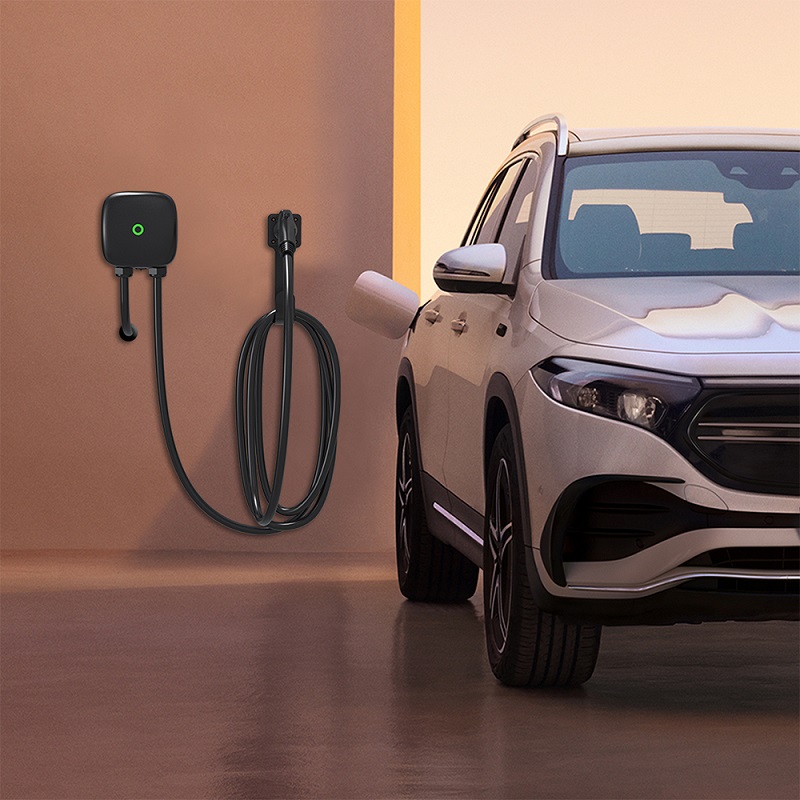
Multiple functions to meet your home charging needs
√ With a variety of home electric car chargers to meet the charging needs of various cars.
√ With multiple protection functions, it is durable, waterproof, and dustproof and can be installed outdoors.
√ Comply with CE, FCC, ETL, and other certificates and international standards.
√ With multiple smart functions, smart charging, reservation charging, and support for OCPP1.6j (some can be updated to OCPP 2.0.1).
√ Multiple connection methods, you can use Bluetooth, LAN, WiFi, or 4G.
√ Support customization function, front panel can be customized with your logo.
Charge your EV with Joint to make the journey longer and more exciting
Joint provides you with comfortable service and warranty
√ Support ODM and OEM. We will customize the products to meet your corporate image and practicality according to your business operation mode and the needs of the application environment.
√ Our home EV charger is easy to install, and we also prepare a professional installation guide for you.
√ With warranty, and high-quality 24-hour service, you don't need to worry.
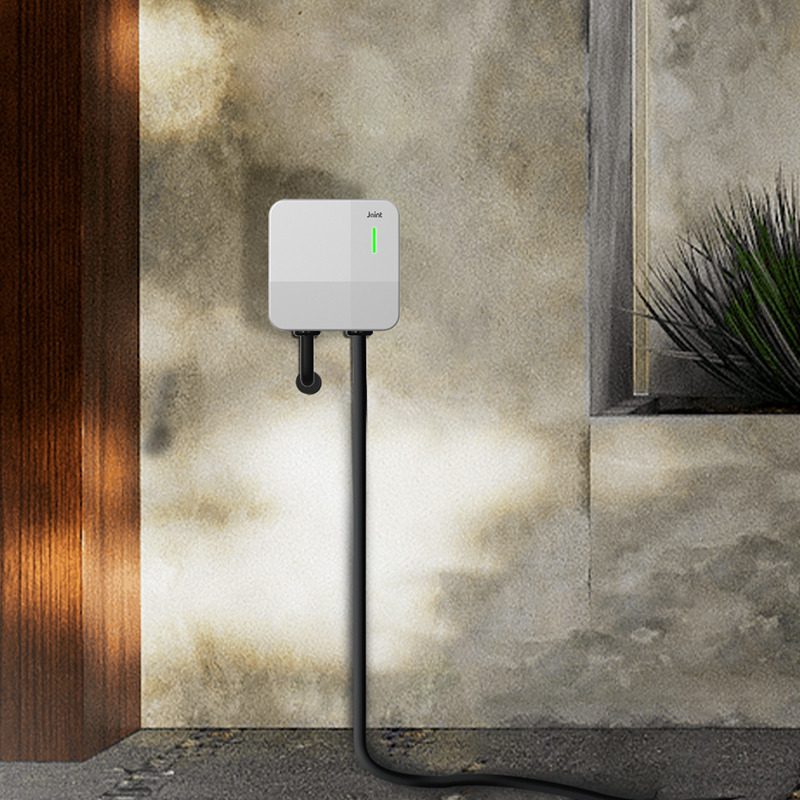
Frequently Asked Questions
Home charging stations are usually categorized as level 2 chargers. Level 2 chargers have higher power levels and charging speeds compared to level 1 EV chargers. But using a level 2 charger is more complicated than using a level 1 charger.
With a level 1 EV charger, you only need to connect a normal household socket, whereas before using a level 2 EV charger, you need to consider whether you want to install another socket. Therefore, you need to hire a professional electrician when installing a level 2 home electric car charger to ensure that the charging station is safely integrated into your home's electrical system.
1. Communication protocols:
The charging station communicates with the electric vehicle through a communication protocol. This protocol ensures the safety and compatibility of the charging process. For example, SAE J1772, CHAdeMO, and GB/T20234.2-2021.
2. Charging authorization and authentication:
Some charging posts require charging authorization and identity verification. This can be done through R, mobile apps or other means of authentication to ensure that only authorized users can use the charging post.
3. Charging process:
When an electric vehicle is plugged into the charging station, a communication protocol is initiated between the charging station and the vehicle. This communication protocol acts like a command to indicate that the electric vehicle charging station can be turned on in power supply mode. The charging process is then initiated via the vehicle's on-board control system or the charging station's user interface. Once charging begins, the home charging station delivers AC power to the electric vehicle. For this reason, home level2 EV charging stations are called AC EV chargers.
During the charging process, the charging post typically continuously monitors the EV's battery status and makes adjustments as needed. Some charging posts are also equipped with a remote monitoring feature that allows users to remotely monitor the charging process through a mobile app or web interface.
4. Completion of charging and disconnection:
When the battery of the EV is full or reaches the target set by the user, the charging pile will stop supplying power and complete the charging process. Users can also monitor the charging situation through the app or stop charging in advance.
Charging at home is potentially more cost-effective than using public electric vehicle chargers. The economic differences between charging at home and using public charging stations involve considerations such as electricity costs, equipment expenses, and additional fees.
There are two main expenses associated with charging an electric vehicle at home: the cost of purchasing a home electric vehicle charger and the electricity charges. Firstly, electricity costs need to be taken into account. If your residential area offers time-of-use (TOU) plans, you can take advantage of charging during non-peak hours to reduce electricity costs. For instance, utilizing the scheduling feature of a home electric vehicle charger allows you to charge during the late night or early morning when rates are lower.
Installation costs are another factor to consider. Home charging involves the purchase and installation of charging equipment, while public charging stations are provided by operators, eliminating the need for individual equipment purchases. However, in the long run, consistent use of public EV chargers may accumulate charging fees that surpass the cost of purchasing a home electric vehicle charger.
Charging service fees are also worth noting. Some public charging stations may impose additional service fees, whereas charging at home typically does not incur such extra charges. Understanding these factors is crucial for a comprehensive assessment of the economic differences between home charging and public charging stations.
The common types of home electric car chargers are level 1 and level 2 electric car chargers.
Electric vehicle chargers are mainly divided into two types: alternating current chargers (AC chargers) and direct current chargers (DC chargers). According to the use purpose, electric car chargers are divided into home electric car chargers and commercial electric car chargers.
AC chargers (level 1, level 2 EV charger):
AC EV chargers are divided into level 1 EV chargers and level 2 EV chargers.
Level 1 EV chargers:
Voltage: typically operates at standard household voltage, 120 volts AC in North America.
Charging Power: Provides a slow charging rate, typically charging about 2 to 5 miles per hour.
Application: Level 1 chargers are typically used in residential environments for nighttime charging or where extended charging times are acceptable.
Level 2 EV chargers:
Voltage: typically 240 volts AC.
Charging Power: Level 2 EV chargers typically have a power output in the range of 3.3 kW to 22 kW, with 7.2 kW and 11 kW being more common.
Application: Level 2 chargers are typically installed in residential environments, but are also common in public charging stations, workplaces and commercial locations. They are suitable for every day charging needs and can significantly reduce charging times compared to Level 1 chargers.
Level 3 EV chargers (DC fast chargers):
Level 3 chargers are designed for fast charging in commercial and public places. They are often used as public EV chargers and deployed in scenarios such as motorways, petrol stations, fleets, etc. to meet people's fast charging needs.
Choose the right home electric car charger.
When you buy an electric car charger, you will find that there are many types of electric car chargers, and they have different power, charging speed and smart features. Therefore, you need to choose the right electric vehicle first, making sure to buy a charger that is fully compatible with your electric vehicle model. You can consult an EV charger dealer for this step and they will be happy to assist you.
Know your home electricity system:
In general, electric vehicle chargers typically require 240 volts of power, while data from the U.S. Energy Information Administration (EIA) shows that the typical American home has a power capacity of 200 amps. Therefore, before installing electric chargers, you need to consult a professional to ensure that your home electricity system supports the operation of electric vehicle charging stations.
Properly install home electric car charger:
Follow the installation guide provided by the EV charger supplier for the installation steps to properly install your home EV charger. Having a professional electrician install it is a good choice.
Check the condition of electric car charger and cable regularly:
You need to check the condition of the charger and cable regularly to make sure they are not malfunctioning. Keeping your electric car charger in good condition will help extend its service life and ensure a safe charging process.
JointEVC38 Mode 3 Electric Vehicle Charger, which supports TUYA App control with smart charging function, has the following advantages:
1.Remote monitoring and control:
Users can monitor the charging status of the EV in real time through TUYA App, check the remaining charging time, as well as start or stop charging at any time. This feature enables users to manage the charging process more flexibly and keep track of the charging situation.
2. Supports charging by appointment:
The Joint EVC38 home EV charger allows users to book charging appointments according to their individual needs so that they can charge during non-peak hours, saving electricity costs and optimising charging time.
3. Save Charging Costs:
With the smart charging system, users are able to choose their charging time more flexibly and enjoy the tariffs during non-peak hours, which reduces charging costs.
4.Improve charging experience.
Jointevc38 has a user-friendly interface that enables users to easily manage the charging process through intuitive design and easy-to-understand operating procedures.
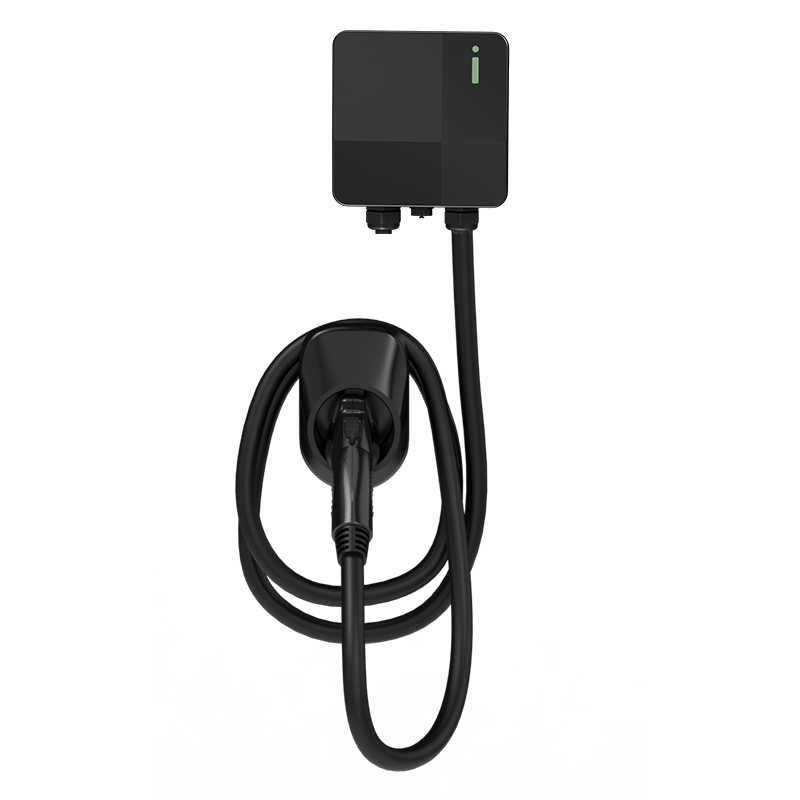
EVC27 Smart AC Home Electric Vehicle Charger can be connected via WiFi, Bluetooth, and an app, with smart charging and multiple protection functions.
√ Support charging by appointment.
√ Build in PEN fault protection, no earthing rod required.
√ Smart app control, you can check the charging data at any time.

The JOINT EVC38 is an economical smart home electric vehicle charger. It is easy to install and can be controlled remotely via the TU YA app.
√ Fast and simple installation.
√ TUYA APP control for smart charging.
√ Fast, flexible and future-proof,delivering up to 32 amps to any EV.
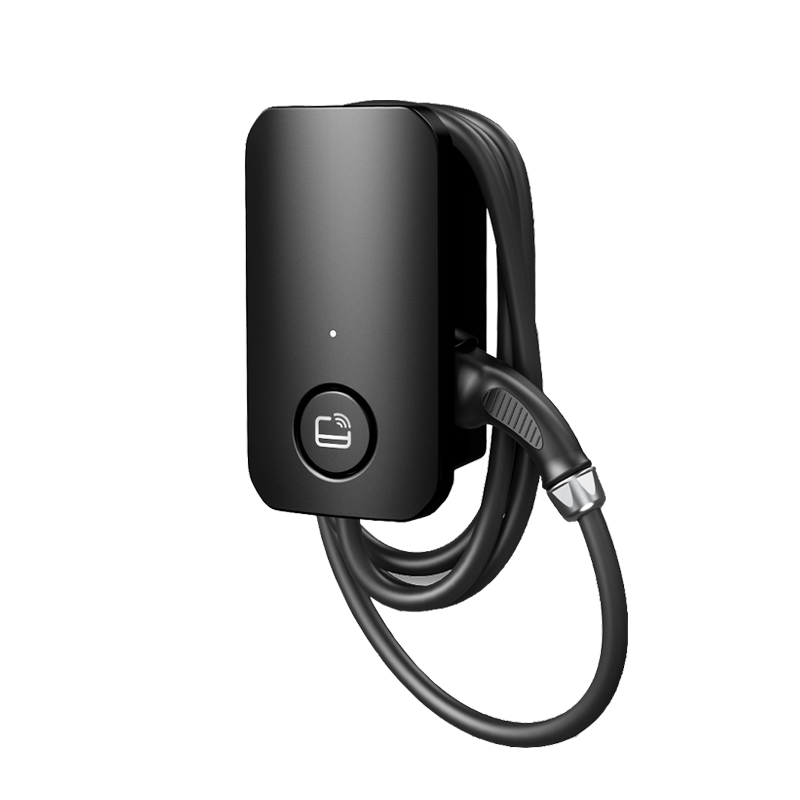
The Joint EV33 supports powers of 7 kw, 11 kw, and 22 kw. It is an EV charger that is fully compliant with the UK smart charging regulations and can be used with RFID cards.
√ Fully compliant with UK smart charging regulations.
√ Removable custom fascia.
√ Easy Power Install (Contact Blades & Wirebox).

As a Mode 3 dual-port EV charger, the EVCD 2 has a maximum power output of 22 KW per connector.Equipped with a Type 2 socket, the EVCD 2 is compliant with the ISO 15118 protocol and can be connected via Wi-Fi, Bluetooth connectivity, and LAN.
√ Max. 22 KW power output each connector.
√ Supports full ocpp1.6j functions.
√ Dynamically energy balance to reducing electricity costs.
Learn more about home charging
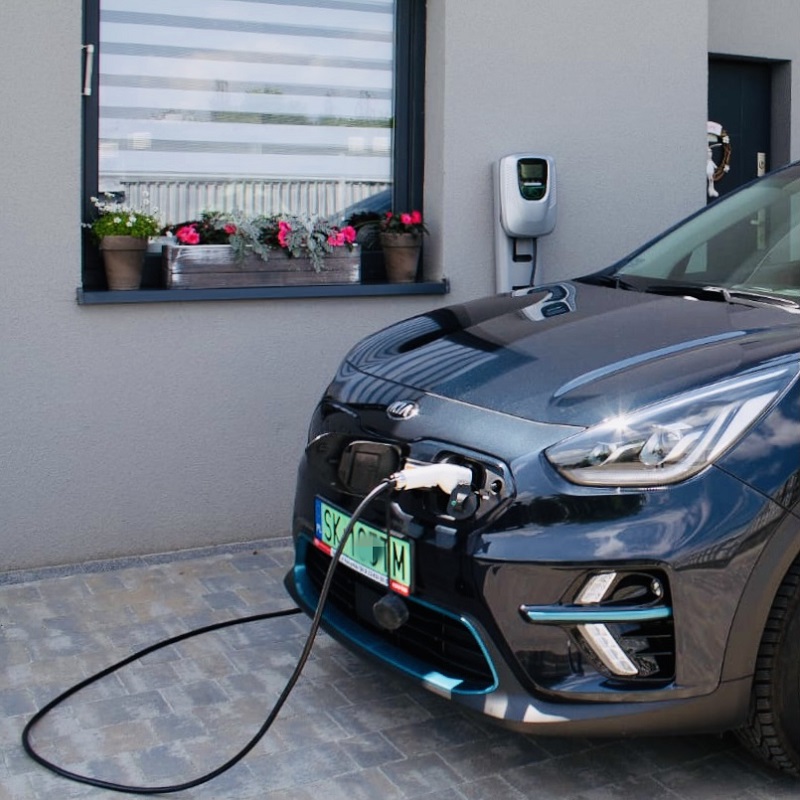
Do I need two EV chargers at home?
This blog helps you make an informed decision for your home charging needs by analyzing the features and benefits of dual-port electric vehicle chargers
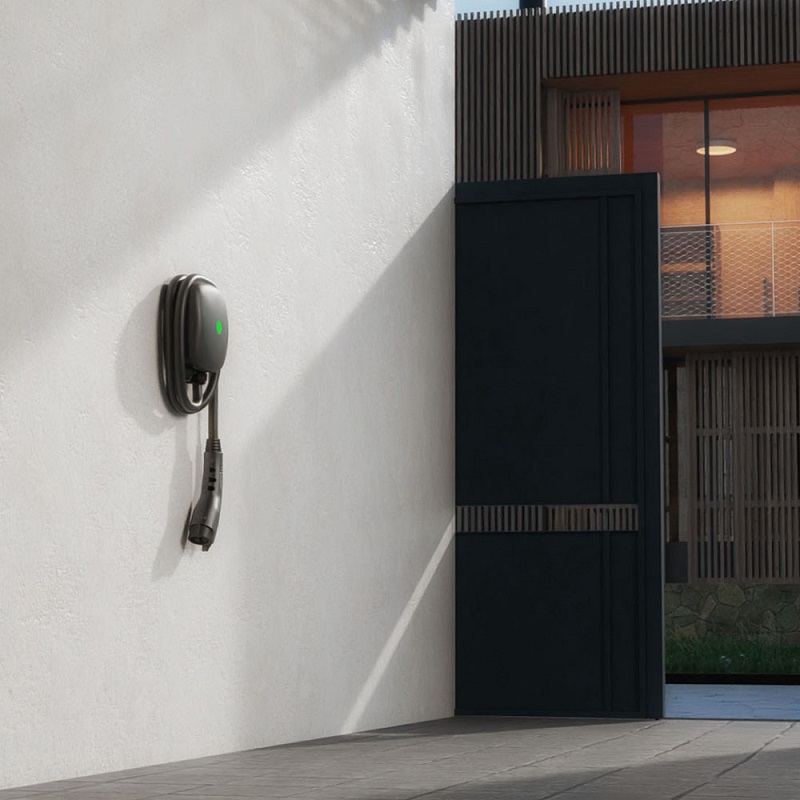
Commercial vs Home EV Charging Stations
This blog will talk about the benefits of installing electric vehicle charging stations around the basic knowledge of commercial electric vehicle charging stations and home EV charging points.
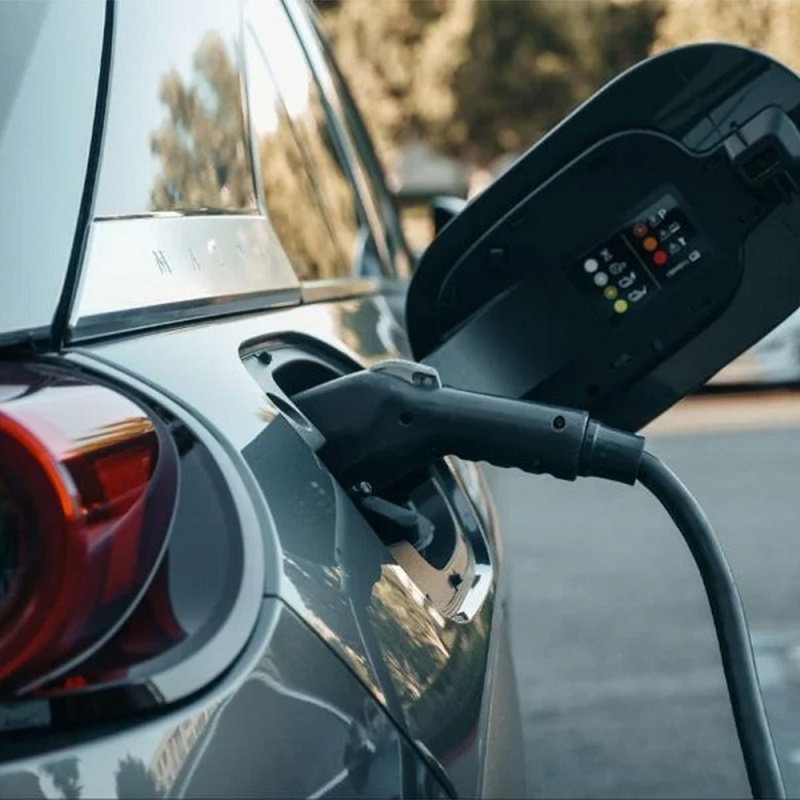
Can I save money after owning a home EV charger
Electricity costs less than fuel, after installing a home electric car charger, we can easily charge at home to save fuel costs.
